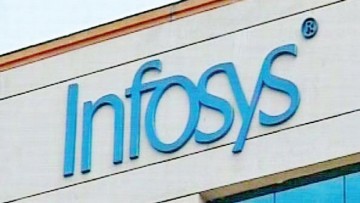 Data security firm Cohesity has spent £5 billion to buy Veritas’ data security business, creating a £10 billion mega-merger.
Data security firm Cohesity has spent £5 billion to buy Veritas’ data security business, creating a £10 billion mega-merger.
Reuters revealed the deal, which will see Cohesity take over Veritas’ data protection unit. The unit is valued at over £2 billion, including debt.
Cohesity’s boss, Sanjay Poonen, said the cash and stock acquisition will help the firm boost its growth and profitability and expand into new markets.
He also claimed the merger will create a “profitable growth machine” that will innovate with AI.
However, analysts are not that keen on the deal, which they see as a risky move that could backfire for both firms and their customers.
 IT giant Atea has admitted its revenues have fallen by a whopping 4.3 per cent to a measly £704.58 million in the last quarter of 2023.
IT giant Atea has admitted its revenues have fallen by a whopping 4.3 per cent to a measly £704.58 million in the last quarter of 2023. Derby City Council has axed two jobs and saved £200,000 using artificial intelligence (AI) to run its services. The council revealed the cuts in response to a Freedom of Information (FOI) request.
Derby City Council has axed two jobs and saved £200,000 using artificial intelligence (AI) to run its services. The council revealed the cuts in response to a Freedom of Information (FOI) request. Two Yorkshire cloud firms have joined forces to offer their customers better data protection.
Two Yorkshire cloud firms have joined forces to offer their customers better data protection. Computer maker Lenovo has joined forces with data experts Blancco Technology Group to offer a new security service for businesses.
Computer maker Lenovo has joined forces with data experts Blancco Technology Group to offer a new security service for businesses. Digital adoption solutions outfit WalkMe has released a report revealing how clueless companies waste millions of pounds daily by not using technology properly.
Digital adoption solutions outfit WalkMe has released a report revealing how clueless companies waste millions of pounds daily by not using technology properly. Amazon Web Services, the big bully of the global cloud market, is losing its grip as AWS’ cloud market share fell two points, while Microsoft’s cloud share rose by nearly two points year-on-year in the last quarter of 2023.
Amazon Web Services, the big bully of the global cloud market, is losing its grip as AWS’ cloud market share fell two points, while Microsoft’s cloud share rose by nearly two points year-on-year in the last quarter of 2023. Connected and Free Streaming TV outfit Amagi ADS PLUS has joined forces with ShowHeroes, a big name in the online ad world. This deal is a huge win for Amagi ADS, making them stronger and more prominent in Europe.
Connected and Free Streaming TV outfit Amagi ADS PLUS has joined forces with ShowHeroes, a big name in the online ad world. This deal is a huge win for Amagi ADS, making them stronger and more prominent in Europe. UK Prime Minister Rishi Sunak is in hot water after Trade Minister Dominic Johnson revealed that he gave special treatment to Sunak’s father-in-law’s Indian IT firm, Infosys.
UK Prime Minister Rishi Sunak is in hot water after Trade Minister Dominic Johnson revealed that he gave special treatment to Sunak’s father-in-law’s Indian IT firm, Infosys. A new study from Juniper Research reckons there will be 290 million 6G users worldwide by 2030 – just a year after it’s supposed to launch. But avoid getting too excited because there are many problems to sort out before we can enjoy blazing-fast internet on our mobiles.
A new study from Juniper Research reckons there will be 290 million 6G users worldwide by 2030 – just a year after it’s supposed to launch. But avoid getting too excited because there are many problems to sort out before we can enjoy blazing-fast internet on our mobiles. TD Synnex has partnered with CF Corporate Finance to launch a new finance scheme allowing small businesses and public sector bodies to purchase Microsoft’s shiny Surface gadgets.
TD Synnex has partnered with CF Corporate Finance to launch a new finance scheme allowing small businesses and public sector bodies to purchase Microsoft’s shiny Surface gadgets. ALSO Group has bagged a deal to buy Italian distie Datamatic, hoping to get a pizza the action in the land of pizza and pasta.
ALSO Group has bagged a deal to buy Italian distie Datamatic, hoping to get a pizza the action in the land of pizza and pasta. SaaS data platform Own Company has launched a new plan to help its partners stop their customers from losing vital data and metadata.
SaaS data platform Own Company has launched a new plan to help its partners stop their customers from losing vital data and metadata. Cyber security firm Check Point has launched its new cunning plan to help its partners sell more and grow faster. With the new plan, the firm wants to show its loyalty to the channel while maximising the chance to work together.
Cyber security firm Check Point has launched its new cunning plan to help its partners sell more and grow faster. With the new plan, the firm wants to show its loyalty to the channel while maximising the chance to work together. Chip maker Qualcomm has given a mixed forecast for its second-quarter profits and sales, but investors are worried about its Android sales in China.
Chip maker Qualcomm has given a mixed forecast for its second-quarter profits and sales, but investors are worried about its Android sales in China.




